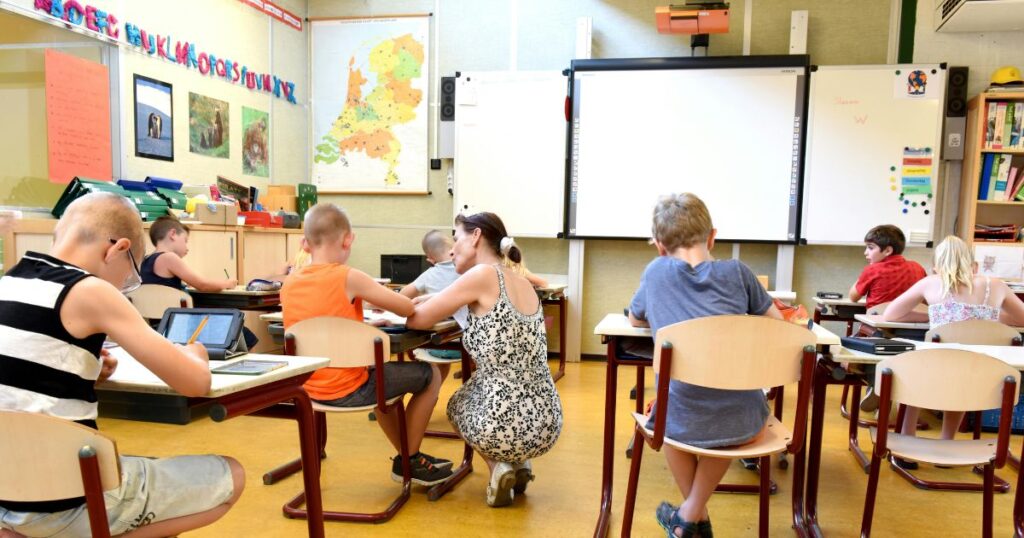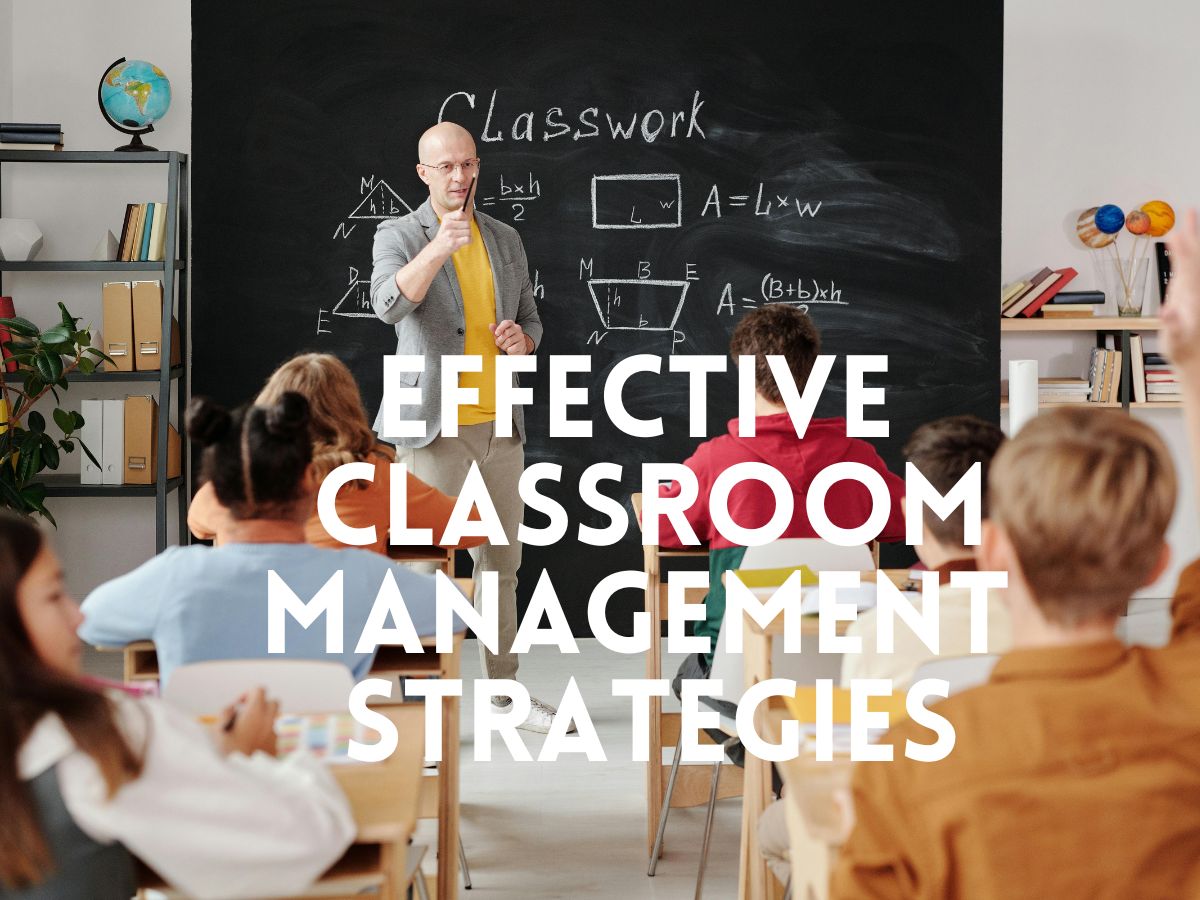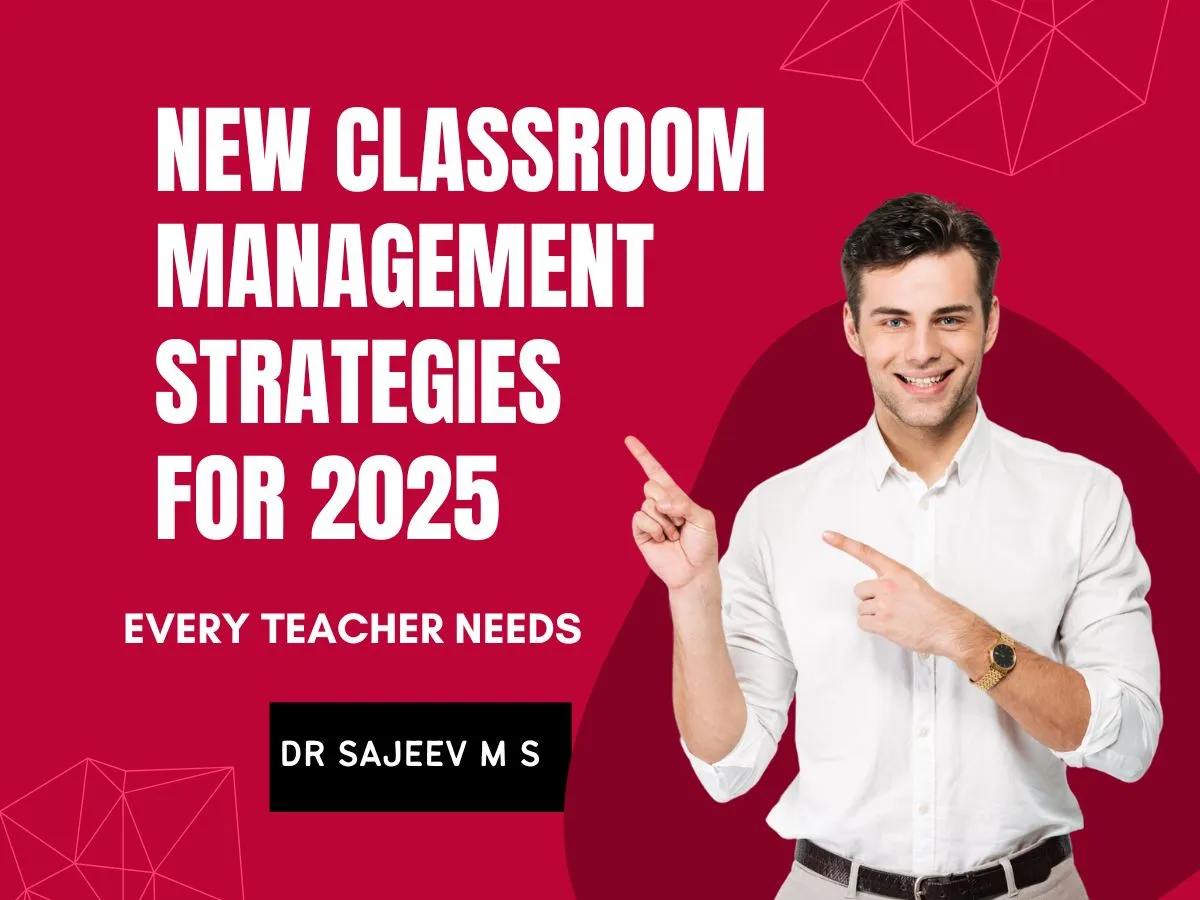Introduction
Effective classroom management strategies for new teachers is a process by which teachers and schools create an environment to maintain the appropriate behavior of students in the classroom. It is very helpful to maximize the learning achievement. It makes a strong relationship between teachers and students. It reduces the misbehaviour of students. Effective classroom management keeps the students attentive, organized, and more productive. It supports the implementation of a better curriculum and helps good teaching practices. It helps effective teaching and learning to achieve the academic progress of students. It creates a positive learning environment.
Understanding Classroom Management Techniques
Classroom management refers to the abilities and tactics that teachers employ to keep pupils organized, orderly, focused, attentive, on target, and academically productive during a class. When teachers use successful classroom management tactics, they limit the behaviors that impede learning for both individual students and groups of students, while boosting the behaviors that support or improve learning. In general, competent teachers have strong classroom management skills, whereas an inexperienced or less effective teacher has a chaotic classroom full of pupils who are not working or paying attention.
Teacher’s role in classroom management
Teachers are responsible for maintaining classroom management. They are creating a productive classroom atmosphere and ensuring good student behavior. They try to build a good class culture and arrange an environment to maximize the efficiency of the students. They should develop positive student interaction for good classroom management. Group projects and activities will create a collaborative environment in the classroom. Teachers should establish rules for the classroom with behavioral expectations. Teachers should evaluate the behavior of the students regularly. They should be able to manage various problems in the classroom to maximize success. Effective classroom management requires a comprehensive approach. It includes a wide variety of skills and techniques during the class time.
Objectives of classroom management

It aims for the behavioral and academic success of the students. It creates rule-based behavior and a learning atmosphere in the classroom to enhance students’ growth. It promotes tolerance in the classroom. It makes positive discipline, including homework within a specified time, sharing any materials among students, use of language, etc. The teacher acts as the supreme authority of the classroom. Classroom management helps students attain high levels of academic achievement
Effective classroom management strategies for new teachers
1. Encourage initiative
Teachers should promote a growth mentality and incorporate a variety of lesson-related activities. They should allow students to plan ahead of time and offer brief presentations to convey their ideas.
2. Offer praise
Teachers should be willing to praise students for good work. It will help in the improvement of academic and behavioral performance. Praise has the power to motivate the entire class. It leads to an increase in students’ self-esteem. It promotes positive student conduct.
3. Avoid punishing the class
Teachers should target particular student’s behavior issues instead of disciplining the entire class. Punishment can ruin the relationship with the students. Teachers can speak individually to students in a nice manner.
4. Allow students to help establish rules
Teachers can lead a conversation about classroom rules and explain the dos and don’ts. It should take place at the start of the school year. Students will accept the classroom rules positively.
5. Establish Routines and Goals
Classroom routines should be followed by both teachers and pupils. It can help pupils understand what to expect. Setting goals will assist pupils in approaching their curriculum with a positive mindset.
6. Interview with students
Teachers can conduct a brief interview with pupils to find out how effectively they work in class. Teachers can inquire about their work, activities, preferred subjects, and intriguing tasks. It will be useful for certain pupils who are causing a commotion in class.
7. Provide Alternatives for learning
It includes activities, instructional videos, and projects that allow students to learn about the content in a more hands-on way. Effective classroom management tactics will reduce student misbehavior and distractions. Students will concentrate on their studies.
Importance of Classroom Management

It affects the learning ability of students and the teaching ability of teachers. It makes a conducive and favorable learning environment for effective learning outcomes. It gives a sense of belongingness in the minds of students to explore more learning opportunities. It helps the teacher to cover all lessons within a specified period. It creates good moral values among students. The success of students depends on the effectiveness of teachers in the classroom. It helps to make good classroom curriculum design and management strategies. The quality of knowledge from the lessons depends on the classroom atmosphere. Teachers can positively influence students’ behavior. Teachers and students are working together in the classroom to attain students’ goals.
1. For Organized Learning Environments
Classroom management encompasses the tasks required to create and maintain an ordered learning environment and discipline, including planning, preparation, and organization. It is a phrase used by teachers to describe the process of ensuring that classroom lessons run smoothly without disruptions from pupils. It promotes students’ academic success as well as their social, emotional, and moral development.
2. For Productivity and Engagement
Classroom management techniques are critical for fostering a productive and engaging learning environment. These tactics aid in the maintenance of order and discipline, allowing teachers to concentrate on providing effective instruction. They encourage organization and consistency, reducing disturbances and increasing teaching time.
3. For diverse learning needs
Effective classroom management tactics also address a wide range of learning requirements, ensuring that all students feel included and supported. These tactics build a healthy and respectful environment by creating clear expectations and regulations, increasing student enthusiasm and participation. Furthermore, they equip instructors to deal with behavioral issues proactively and constructively, resulting in higher academic achievement, stronger student-teacher relationships, and a good impact on students’ general well-being.
Impact of Effective Classroom Management

It creates a positive classroom to study without distractions. It facilitates the social and emotional development of students. It will help students’ success and create a productive learning atmosphere. It creates mutual respect and strengthens good relationships between students. It increases meaningful academic learning and decreases the negative behavior of students in the classroom.
Conclusion
Therefore, class management is important to transform the class into a positive focus and an all-embracing class. This paper asserted that, if teachers properly interpret the environment, set specific expectations, promote desirable behaviors, and attend to individual needs, they can build early childhood classrooms for learning and personal development. Such approaches help students to succeed and improve their social-emotional development thus minimizing the cases of misbehavior. Proper management of the classroom ensures compliance of respect and response to keep students on track in compliance with their studies and environment. Lastly, when teachers choose the appropriate approaches in classroom management, students are enabled to grow to their capacity and make them ready to succeed for the rest of their lives.
You may also like to read:- What is Blended Learning? Definition, Advantages, Best Practices
4 Types of Learning Styles | How to Teach Them
- How to Dominate Your Online Business With 5 Proven Digital Marketing Strategies
- How to Cultivate Critical Thinking and Problem-Solving Skills in Classroom
- Top Proven Mental Health Strategies for Schools in 2025-26
- Time Management for Teachers: How to Plan, Prioritize, and Perform Better
- How Parental Involvement in Education Shapes a Child’s Growth and Success
Frequently Asked Questions
1. Explaining the concept of classroom management: what it is, and why it is important.Management involves regulating student discipline and order in a classroom in order to make it a controlled polite and happy place for learning. It is crucial since it enhances student learning, enhances the delivery of instruction, and sustains a constructive classroom climate.
2. What are some evidence-based classroom management strategies?
Specificity increases student participation in decision-making, encourages action, rewards the student, and establishes regularities in the strategies. The mentioned strategies allow children to remain attentive and engaged in a class, as well as minimize interruptions.
3. What are the advantages of classroom management to learners and instructors?
Class management plays an important role in facilitating students’ learning needs, academic achievement and their interpersonal and emotional skills. This also ensures that teachers have good interaction with the learners in their classroom without interference hence improving the performance of the learners.
4. What is the teacher’s contribution to classroom management?
Teachers are expected to make productive use of classroom time, to be able to set reasonable expectations, to prevent and correct behavior problems, and to establish and maintain classroom order. They also foster good relations between the students as well as promote intended collaboration activities within the class.
5. How does classroom management impact student behavior and learning?
The question that needs to be answered is what effect does the management of a classroom have on students’ behaviors and learning. Classroom management is best characterized as a set of processes that have a direct bearing on the amount of correct student behavior in class. This makes them have lots of time for learning, the students feel that they are accepted and they also gain good moral ethics which all in one leads to improved behavior and high grades.




Good article
Good article and very well covered all points